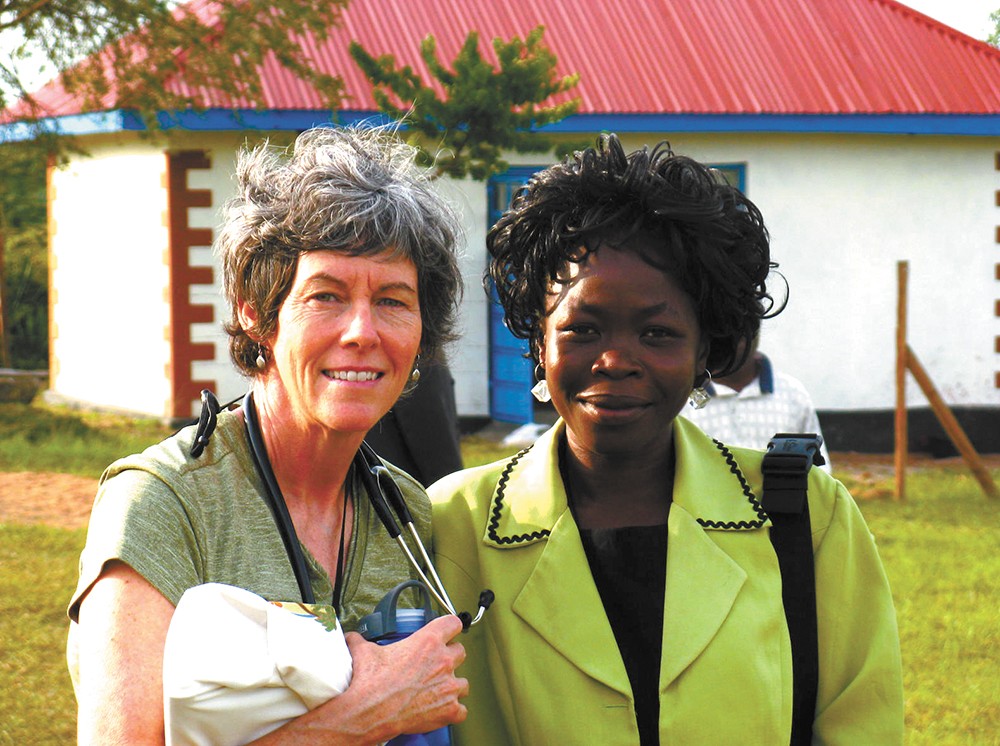"It gets under your skin," Wayne Krafft says, describing his work developing safe drinking water systems in Kopanga, a small village in Kenya. "You establish relationships with the people, see their needs, work with them, and get to see real results."
In 2010, Krafft, his wife Patti and their 16-year-old son traveled to Africa with Partnering for Progress (P4P), a Spokane-based nonprofit that has been taking teams of volunteers to Kopanga since 2007. The Kraffts returned in 2015 and are headed back this July.
As world travelers who avoid five-star hotels and relish getting to know locals, the Kraffts were not strangers to third-world living conditions. Even so, the poverty of rural Kenya was disconcerting. Wayne walked the villages mapping springs, streams and wells with a Kenyan who works with P4P, and saw women drawing their drinking and cooking water from a pond next to a teenager washing clothes and a mother bathing her infant. Cows grazed and defecated just up the slope.
P4P and Wayne, a chemist who works for the Waste 2 Resources Program at the Washington State Department of Ecology, recognized that digging wells was only a start. On his return trips, he worked with local high school science students and educators, testing water and letting the kids see what pathogens looked like in a petri dish.
"Telling people your water has germs is one thing," he says, "but letting them actually see how many germs are in their water, and then explaining all the diseases that come with drinking dirty water, really brings it home."
Patti, a nurse practitioner at Columbia Medical Associates in Spokane, says that on her first trip to Kenya she saw about 100 patients a day in a small clinic.
"People would walk for miles — days — to see the mzunga (foreigners) and our goal was to help as many as we could and teach them about healthier lifestyles," she says. "Over the years P4P has been in Kenya, we've changed our efforts toward a community health focus. We consulted with the Ministry of Health to determine their priorities — HIV, malaria, diarrhea due to unclean water, malnutrition and sanitation. We are training community health volunteers and work with health care providers to improve their diagnostic skills. In the process, I've learned a great deal about treating local diseases from my Kenyan counterparts."
When the Kraffts' friends and family members express bewilderment at their continued devotion to Kenya, they offer two explanations. They describe the Kenyans as kind and grateful people who laugh and sing and welcome them, and they try to put into words how much they value doing something worthwhile as a couple.
"Working together to solve complex problems is rewarding, and it's important to understand what matters to the people you're trying to help," Wayne says.
Details
Partnering for Progress organizes two volunteer teams a year. Approximately $2,400 covers airfare, entry visa, lodging and meals for nine days. partnerngforprogress.org

















